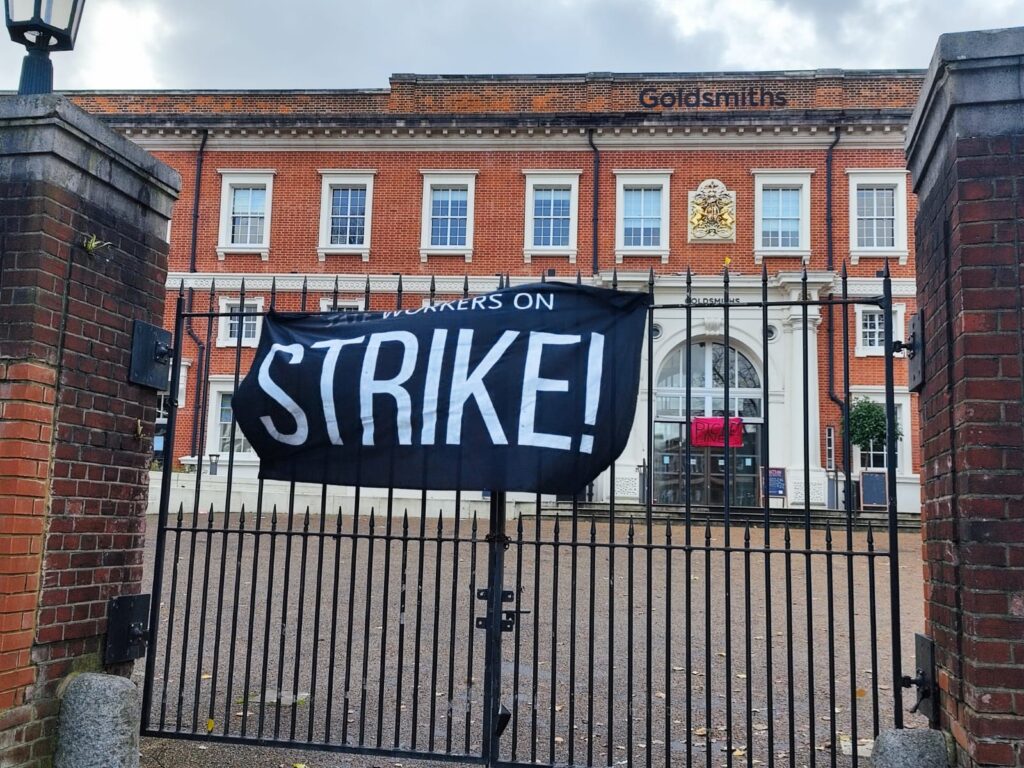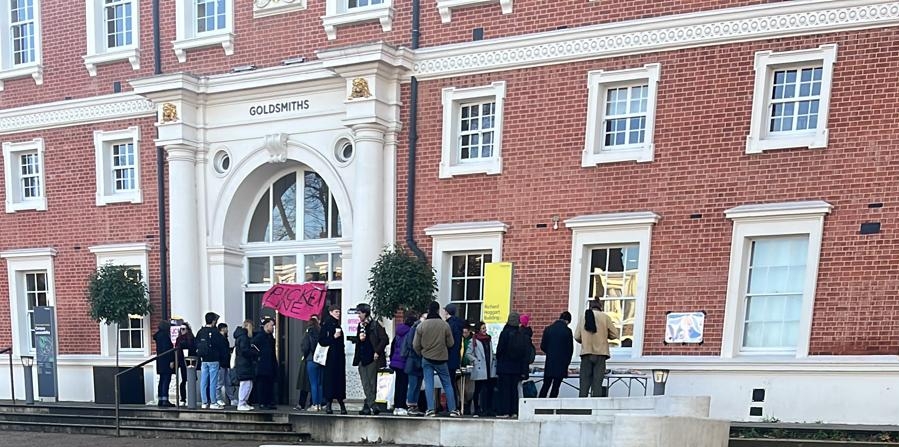

(Picture Credit: Shreeyashi Ojha)
National strikes were held today, across the UK, by lecturers and teaching staff at higher education centres concerning industrial action over pay, working conditions, and pensions.
Branded as the biggest strike in the history of UK higher education, the University and College Union (UCU) announced a planned national strike in 150 universities on November 24, 25, and 30, 2022.
More than 70,000 university staff and students turned at the picket lines in support of the cause, which was joined by Unison and Unite unions, on strike for better pay and working conditions.
UCU’s general secretary Jo Grady said: “Today’s picket lines are huge. 70,000 university staff have turned out like never before, defying bullying tactics from management to show they will no longer accept falling pay, pension cuts, brutal workloads, and gig-economy working conditions.”
Taking a dig at the University’s administration, Grady said: “If vice-chancellors doubted the determination of university staff to save our sector, then today has been a rude awakening for them.”
The banner for a proper pay rise was raised by those on strike, claiming that the administration had the resources but did not consider their demands.
Pointing out the deplorable conditions, Grady said that the “pay is abysmal, falling 25 per cent since 2009. Our pensions have been cut 35 per cent despite the fact the scheme is in surplus, and we could easily restore that cut. And we also have a system where a third of academic staff – 90,000 people – are employed on insecure contracts.”
She further added: “Staff is working weekends as routine to keep the show on the road. There is nothing else we can do other than take strike action to change the sector.”
Industrial action has disrupted education for roughly 2.5 million students.
The demands include a pay rise in recognition of the cost-of-living crisis following this year’s 3 per cent interest rate increase and an end to insecure and short-term contracts.
On pensions, they demanded employers to reverse revisions imposed this year that would lead to the average member losing 35 per cent of their future retirement income.
The picket lines were jam-packed with students standing in solidarity for the cause. At Goldsmiths, the fervour of cohesion was evident as several students stood at picket lines.
A student from the Media and Communications department said: “I am in full support and solidarity with them, and I think that having our teachers in such precarious circumstances is damaging our education system.”
Another student pursuing Music at Goldsmiths, said: “It is important for students to understand the needs of their teachers because without them we are nothing.”
On similar lines of mutual respect, the solidarity kitchen was established by the staff and students.
Speaking of the massive support received, Grady said that they had been “overwhelmed by the support of thousands of students” who had joined us on the picket lines. Moreover, she said that “vice-chancellors were wrecking the sector for staff and students alike” and that they were determined to stand together and “fix it.”
Students came in to support the teachers and other staff. The National Union of Students (NUS) released an official statement in support of the strikes, which said: “Students stand in solidarity with the 70,000 university staff across the UK who will strike later this month.”
The website further said: “Staff teaching conditions are students’ learning conditions, and we must fight together for a fairer, healthier education system for everyone who works and studies.”
However, the Minister for Skills, Apprenticeship, and Higher education in England, Robert Halfon said it was “hugely disappointing” for students who had already suffered during the pandemic to face further disruptions. He further added: “I urge all sides to work together so that students do not suffer with further learning loss.”



